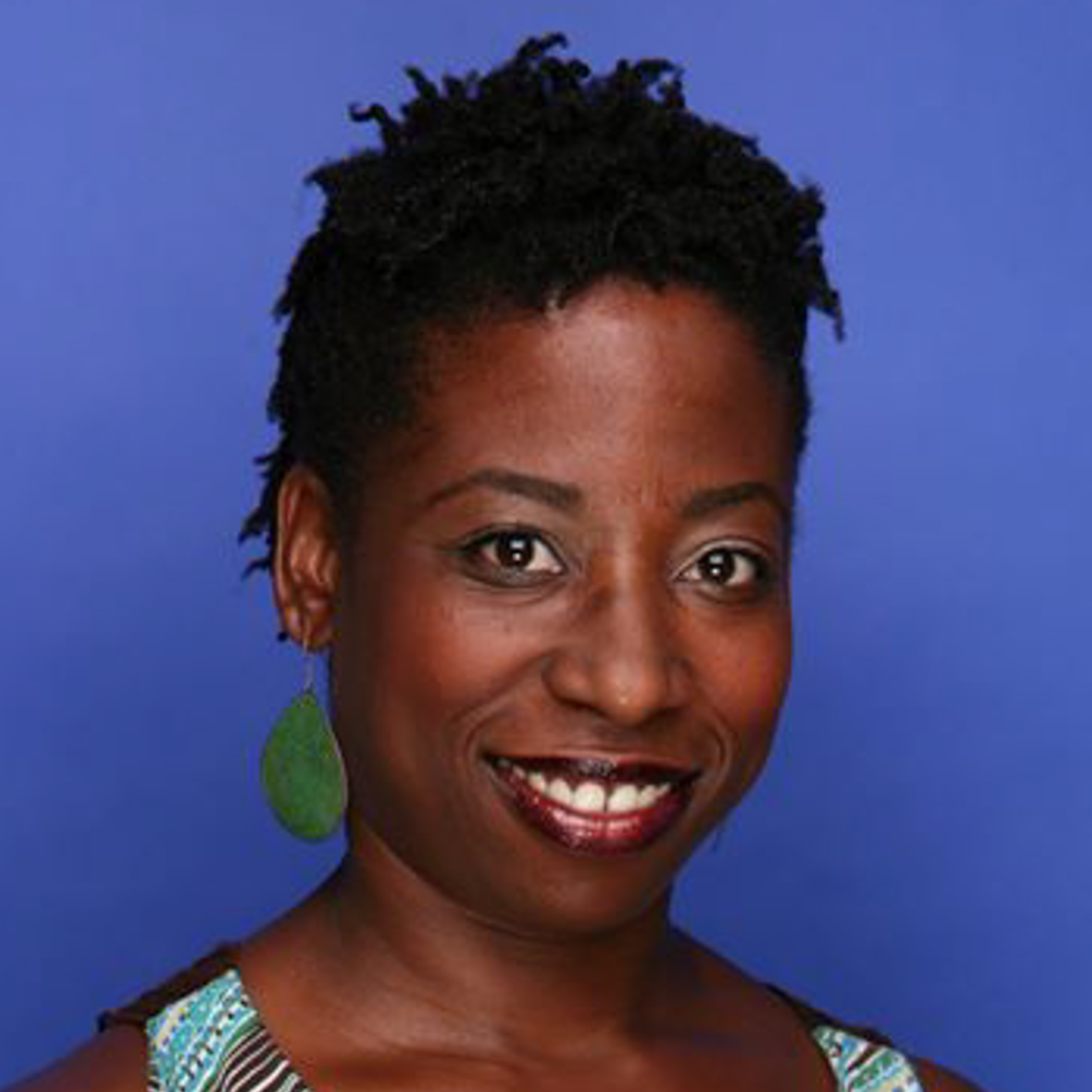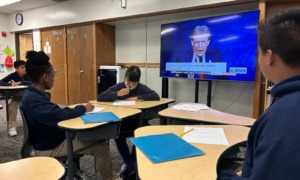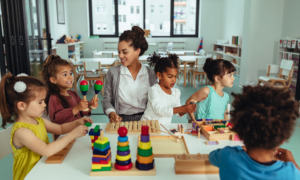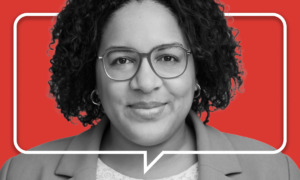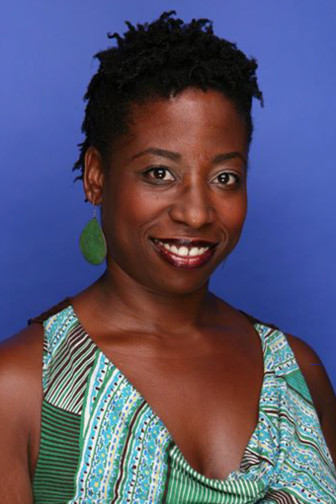 For now, there’s not much we can do about police brutality against our children of color. We post our social media memes, share news stories, watch footage and talk about how horrible the images are among ourselves. Some of us even put boots to the ground and march to the offices of our policymakers to advocate for change.
For now, there’s not much we can do about police brutality against our children of color. We post our social media memes, share news stories, watch footage and talk about how horrible the images are among ourselves. Some of us even put boots to the ground and march to the offices of our policymakers to advocate for change.
But in the meantime, it’s safe to say that nothing’s going to change immediately. The only two real-time things we can do are talk to our black youth and be an eyewitness — even to their own experience, according to a counselor and a former police officer turned anti-police brutality advocate.
Last month in Washington, D.C., We Act Radio’s Luv Lounge taped in front of an audience a segment on “Our Children & the Law.” I watched counselor LaNail Plummer and Jonathan Newton, anti-police brutality advocate, explain how to raise children of color — particularly black youth — in a society that is constantly targeting them.
Concerned with how my 10- and 12-year-olds are taking in all the misconduct and brutality cases, and senseless killings of black men, I wonder how they would react if put into a similar situation. Really, what should they do if/when they actually come in contact with a police officer; whether they’ve done something wrong, are witnessing a crime or want to help defend a friend or family member?
I want them to know how to respond, but I don’t have any idea what to tell them. Right now I tell them stay calm, don’t answer any questions, demand that they call a lawyer and your mother … but realistically, these kids are too young to do any of that.
Plus, will that get them in more trouble? And thirdly, I simply don’t see any of that happening. My son was too afraid to assert himself with the local librarian when he was accused of being too old to be in the children’s section when he was the right age (he’s just a bit tall).
Finally, can you imagine a kid “demanding” a lawyer in front of a police officer? Yeah, me neither.
My daughter is deathly afraid of police. When I was pulled over for rolling through a stop sign when she was about 6, she leaped into the cargo area of the car to hide from the officer before I could even stop the car. I thought for sure the officer was going to shoot at us or demand we get out of the car after seeing that.
I had to explain to her that we — she — had done nothing wrong. I even asked the officer to explain that she was not in any trouble. My son says he’s “not yet” scared of the police. He does say that the potential of more police brutality cases would make him more fearful. He says if he steers away from police and criminal activity, he should be fine. That makes total sense, but unfortunately, that is not how it has been working as of late.
“Young people do not understand why all of this is happening. The impact is really affecting our youth. We need to prepare our children for these circumstances,” said radio show guest Newton, president of the National Association Against Police Brutality (NAAPB), father and former police officer. “My conversation has been to survive. Police are armed with a belt, Taser and gun. You’re going to end up being beat or killed by an officer who is out of control.”
Young people need to become good witnesses for things we cannot stop.
“If you’re in a situation where you see an officer is doing something that is going to turn into a deadly situation, legally speaking, the only thing people can do is try to survive,” he said.
See. I told ya. There really isn’t much we can do. Grin and bear it — and record it. Just great. But according to Plummer, we can get deeper into our youths’ heads.
“A lot of it has to do with the conversations we have with our children,” said radio guest Plummer, who is also a Trinity University professor and mother.
“Our children are being traumatized day in and day out, and they don’t know if they will be next. We have to build their resilience,” she said.
Parents must train children to push through a traumatic event with a thought, she said. Children need to be exposed to what’s happening in a very sensitive way, through careful conversations, video or by attending protests, so they can build a resilience to traumatic episodes, she said.
“Otherwise, they will experience them in a very different way … through urban PTSD,” Plummer explained. “Our children here in the U.S. are products of war.”
The three symptoms of urban PTSD are hyperarousal (fighting back), numbing (desensitizing or having that “I’m gonna die anyway” attitude) or flashback (operating in a bipolar, erratic manner).
“We need to start developing their brain to be resilient. We can’t stop this right now. If we could, we’d stop this tomorrow, but that’s not our reality,” she added.
Unfortunately, it’s true — it’s not our reality. So in the meantime, I need to keep the kids’ phones charged and memory space available so they can provide evidence of what’s going on out there on the streets to their counterparts — and themselves. And I’ll have to continue to have those difficult conversations that remind them daily that they are different and must be wary of those they were once told would protect them.
That’s our reality.
Zerline Hughes is a Washington, D.C., communications consultant and blogger on social justice issues. Her blog Not These Two focuses on keeping her children out of the school-to-prison pipeline. Follow her on Twitter at @zerlinehughes.


